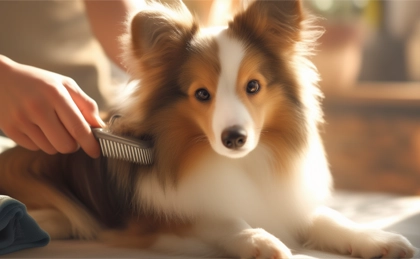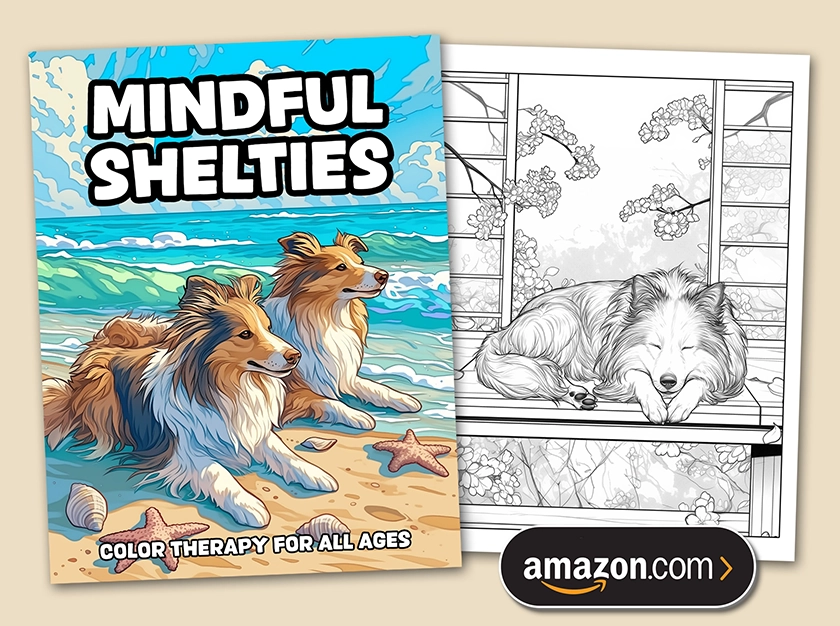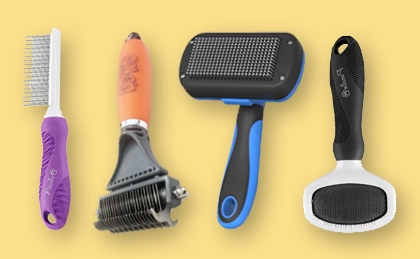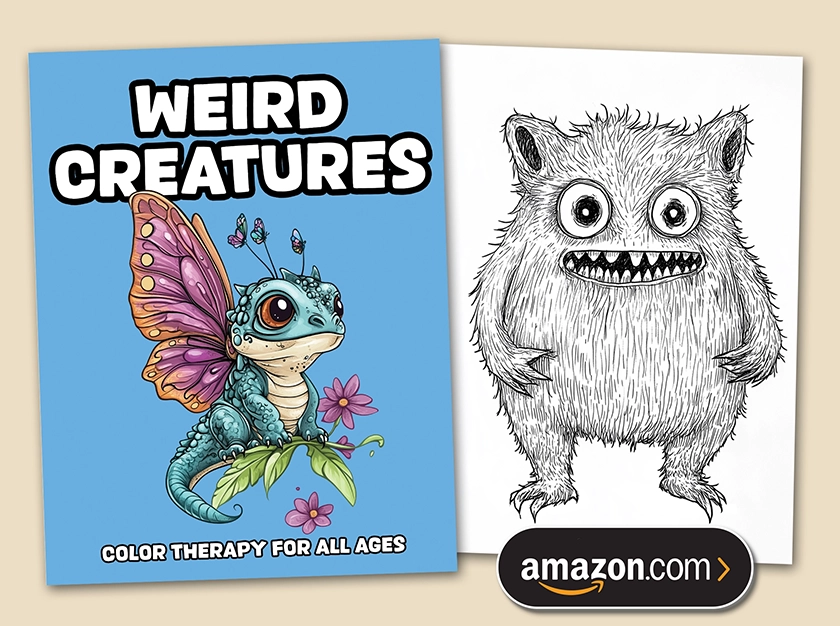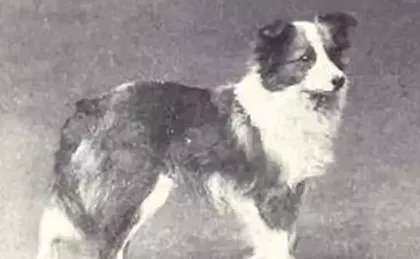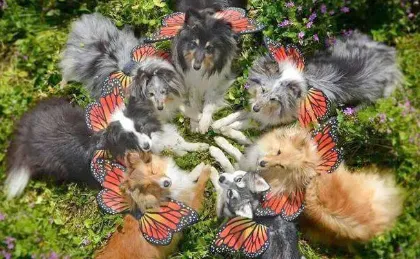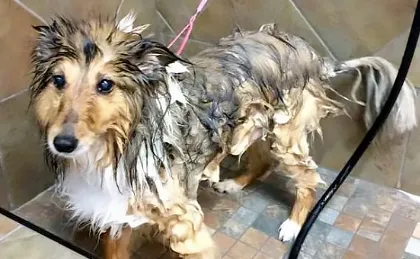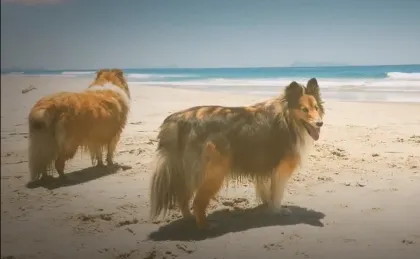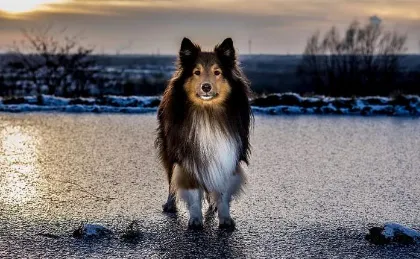While most dogs love to play fetch, Shelties are far more idiosyncratic. As herding dogs, they love to chase moving targets but the concept of picking up a ball and returning it is not in their wheelhouse. So what kind of games do Shelties like? We looked to our own Shelties for the answer—and the first thing we noticed was the Play Bow.
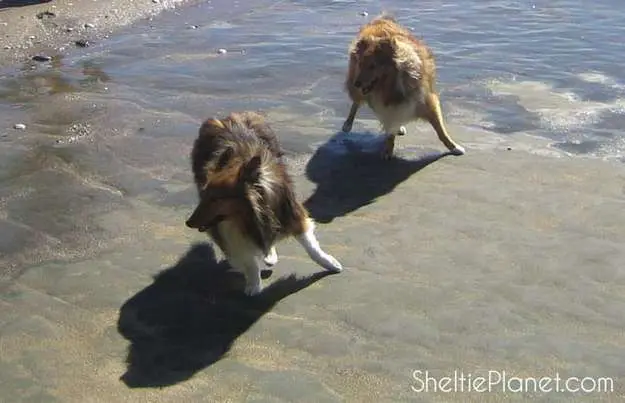
Fun games for Shetland Sheepdogs involve herding and agility.
The Play Bow
The Play Bow is a dog's way of saying, "I'm gonna get ya!" You'll see your Sheltie do it to other dogs at the park, and he'll be stoked when he sees his human do it when you're both stuck at home on a rainy day.
Get down on all fours and lower your head, making direct eye contact with your dog across the room. For added effect, waggle your rump. There's no real reason to do this, I just like the image of a grown-up being this silly.
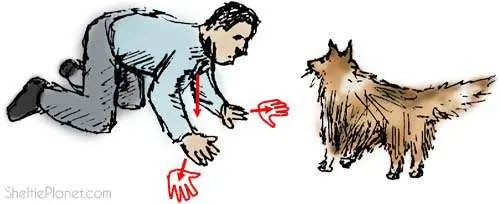
Dogs initiate play with The Play Bow
Once you have his attention, suddenly sprawl your hands forwards and outwards, lowering your chest towards the ground. Watch him mimic you.
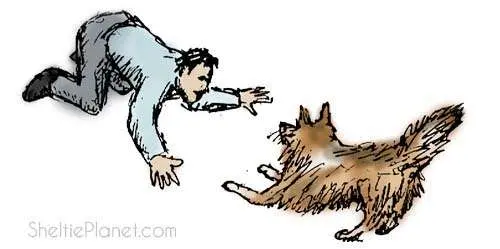
Now dash!
Now excited, he'll likely tell you what he wants to play. Howard used to go find one of his stuffed toys and trot it around the living room, showing off his prized possession while keeping it just out of our reach.
Howard's Game: Who's Got The Toy?
The Goal: Toss a stuffed toy around the room, simulating competition over it. It's not a tug-of-war, but a challenge to get possession of the runaway toy.
The Rules: No fingers! Keep your digits in a fist to form a paw-shape. This makes it a fairer playing field, you with your opposable thumbs.
Let's Play: Keep the toy moving so your Sheltie gets to chase a moving target. He'll eventually grab it and run off, but instead of getting into a tug-of-war, practice your recall and drop commands, then throw it again. It's the closest we ever got to fetch, yet a lot more interesting with hunting involved.
Benefits: This game challenges your Sheltie mentally and physically, mimicking ownership of prey in a play setting, and builds your bond too.
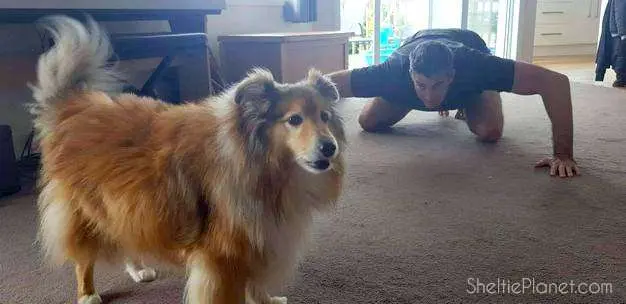
Trigger that play drive to burn up your Sheltie's energy
Piper always got in on this game too, with the not-so-secret agenda of practicing his dominance skills in a safe arena. Totally out of character, this sensitive little pooch loves to own us at play—flat on the floor on our backs.
Piper's Game: Puppy Wrestling
The Goal: To playfully roll your dog on his back for a tummy scruff. And vice versa.
The Rules: Match your Sheltie's strength and let him win most of the time. As long as you respect his limits, he'll trust that you're just playing and aren't really threatening him. In this frame, Piper loves puppy wrestling.
Let's Play: Keep your body at a reachable level and paw at your Sheltie. When he touches you, roll over on your back and let him pin you down with his paws. Squeal and encourage his boldness as he holds you down, tail wagging.
Benefits: It's a great confidence booster for little Piper. It's also a good opportunity to train bite inhibition in puppies: if he nips you, yelp and turn away for five seconds, so he learns nipping leads to withdrawal of play.
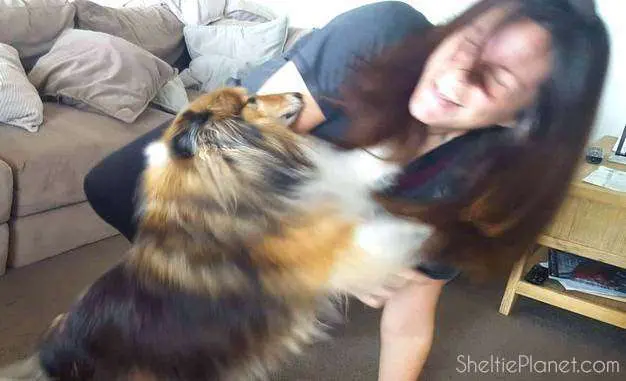
Piper practices his dominance in the safety of play
There's one more classic Sheltie game that demands a mention. It's universal to all Shelties, born of their love of chasing: zoomies.
Every Sheltie's Game: Zoomies
The Goal: You chase me for a bit, then I'll chase you.
The Rules: After a mutual play bow, one dog plays prey and the other plays predator. Shelties tag each other by grabbing the other's neck fur in their jaws, then they switch roles. How you tag is up to you!
Let's Play: Start in your Play Bow position, but instead of sprawling, freeze and stare at your dog with a grin. Creep slowly towards him like an eye dog. Keep your eyes fixed and lick your lips. You're ready to pounce. This is the stalking phase. Your Sheltie will freeze too, tail wagging, trying to decide which way to dash. Wait until the last second, then do a failed pounce and give chase. When you catch up to him, switch roles and dash away. Your Sheltie will catch up to you easily, so prolong your capture by hiding behind furniture.
Benefits: It's a lot of fun. It also tires them out, making them less likely to be hyper alert and barking at windows for the next few hours.
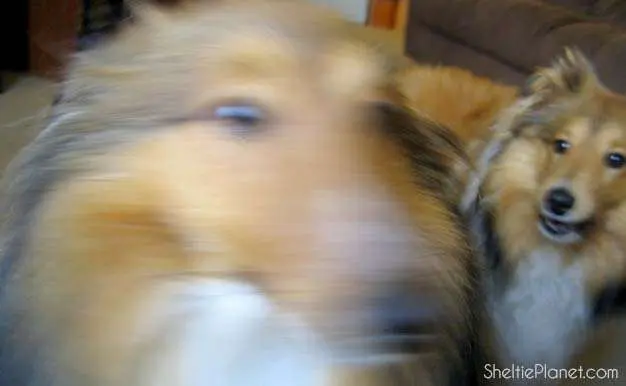
Shelties love to play Zoomies.
